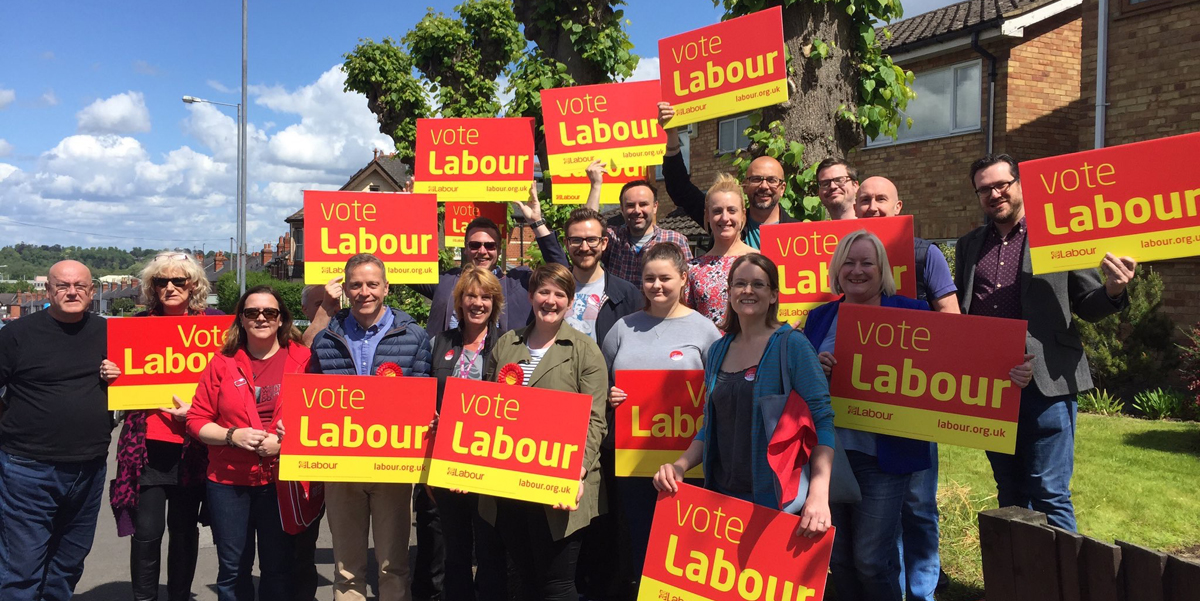Lessons from the campaign trail
Labour’s positive election campaign needs to be a stepping stone to a win next time, says Olivia Bailey I learned a lot during my time as the Labour party candidate in Reading West. I went through two pairs of shoes, accidentally...
Labour’s positive election campaign needs to be a stepping stone to a win next time, says Olivia Bailey
I learned a lot during my time as the Labour party candidate in Reading West. I went through two pairs of shoes, accidentally excluded vegetables from my diet, and gained a newfound respect for the resilience of politicians. My result, like others across the country, defied all expectations – and it is crucial we understand what went well for Labour and what didn’t. Here are my five lessons from the campaign trail.
1. We must never forget the impotence of opposition
During the campaign people broke down in tears as they described the impact of disability benefit changes, or the cost of social care. I lost count of the number of parents who told me how worried they were about the impact of school cuts on their children’s education. One head teacher told me about a pupil at her school who had tried to com- mit suicide, and was then put on a nine-month waiting list to see a counsellor. I have been left in no doubt about the disastrous reality of Tory Britain. But I have also been left frustrated by the impotence of opposition. Labour got a good result, but it didn’t win the election. We’ve got to do everything we can to ensure this election result is a stepping stone to government, not a high water mark.
2. We need to enthuse our working-class base
I wasn’t expecting the result to be as good as it was. My conversations with voters suggested that traditional Labour supporters were moving away from us in some of the areas that Labour has always been able to rely on. I had lots of conversations about immigration, national security and management of the economy – and I had a fair few doors shut in my face. My experience was replicated across the country, and explains why Labour HQ felt pessimistic before election-day.
Part of the reason we allowed ourselves to believe the result would be so bad is because we were spending most of our time talking to the people we knew had voted for us in the past. According to YouGov, Labour held on to 71 per cent of the people who voted Labour in 2015. This means that around six and a half million of the more than nine million people who voted Labour in 2015 voted Labour again in 2017. At this election, Labour secured 12.8 million votes, which implies it gained more than six million votes from people who didn’t vote Labour last time around.
This remarkable increase in vote was mainly thanks to higher turnout and large numbers of switchers from other parties. Demographically, the voters Labour attracted were likely to be graduates, ethnic minorities, public sector workers or under 40. But Labour candidates were not wrong when they sensed a lack of enthusiasm amongst the working class. While Labour retained a marginal lead amongst social grades C2DE, this is not enough for a majority. Bristol academic Paula Surridge has shown that the more working-class a seat was, the more likely it was to swing to the Tories. This explains why Labour lost seats like Mansfield, which has been Labour since 1923.
Labour won’t win seats like Reading West until it achieves the same level of enthusiasm amongst the working class as it does amongst the rest of the population. Labour also won’t be able to form a majority government. Fabian analysis has shown that of the 64 most winnable seats Labour needs for a majority, 25 have an above average working class population. And Labour must have a particular focus on older working-class voters, given that the Conservatives performed particularly well amongst the over 55s.
3. We must remember the importance of hope
Jeremy Corbyn held a large and impressive rally in Reading. As I stood on the stage with him while the crowd chanted his name, he leant over and asked me how it was going on the doorstep. He wanted to know whether the public were warming to ‘a certain man with a beard’. Yes, the public were warming to him, but Labour’s relative success was about much more than just the man. It was about hope.
It is remarkable how often politicians think that gloomy warnings will be enough to convince people to vote for them. In the EU referendum, the Remain campaign talked almost exclusively about risk; whereas the Leave campaign had a hopeful message about the chance for more control and greater prosperity. In this election, Theresa May’s strategy was based on scaring people about the risk of Jeremy Corbyn and the consequences of disorganised Brexit. But people voted for Labour because we were talking about how our country can be better.
The lesson of previous majorities is that Labour only wins when it has a positive vision. In 1945 we won because we promised to use the solidarity of the war to build a new country that worked for everyone. In the 1960s we spoke to emerging social liberalism and aligned ourselves with economic modernisation. For New Labour, it was the word ‘new’, an excitement about change, and a shared sense that Britain’s best days were yet to come.
A Labour majority can be forged from the votes of people who want our country to change course, but only if Labour can develop a widely popular vision for what it wants that country to look like. The manifesto demonstrated that there can be an enthusiasm for more radical ideas, but Labour now needs to develop a blueprint for the future of our country. That blueprint needs to hold Labour’s diverse electoral coalition together, whilst also reaching out to people who voted Conservative this time around.
4. We must never forget the power of our movement
At 10pm on election day, when the exit poll was announced, I nearly drove in to a lamppost. I was soaking wet from the last doorknocking session in the rain, and I’d just retrieved my friend from another ward so we could listen to the projections together. When I heard the news, I couldn’t believe it. And when the projections started to suggest that Reading West could be in play, it was decided that I wouldn’t be let back in front of the wheel. A car crash would have spoiled everyone’s night. In an act of kindness that typified the party members who helped on my campaign, I got bundled in to a car and driven home where I was to wait for the call to come to the count. While we were just shy of victory, more than 22,000 people voted for me that day. They did so only because of the generosity, good humour and hard work of Labour party volunteers. It is amazing what you can achieve when you organise for what you believe in.
5. And finally, dads are embarrassing, however old you are
They say a father’s pride is a wonderful thing and I got proof on the campaign trail. After I debated my opponent on the radio one morning, I checked twitter to see what people had made of me. A grand total of one notification popped up. My dad had tweeted @BBCBerkshire to say how well I’d done. I politely chastised him, yet subsequently caught him introducing himself as my dad on the doorstep.

